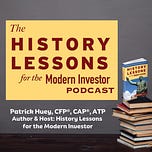On October 15, 1815, Napoleon Bonaparte is exiled to the remote island of Saint Helena, where he spends the last six years of his life.
He probably should have seen that coming since the very same week (October 19th) marked his retreat from Moscow three years earlier. Born in 1769 on the island of Corsica, Napoleon rose to prominence during the French Revolution, becoming a military hero and political leader. In 1799, he seized power in a coup, establishing himself as First Consul and later crowning himself Emperor of France in 1804. Napoleon's military genius led him to conquer much of Europe, forming a vast empire and implementing reforms such as the Napoleonic Code, which influenced legal systems worldwide. However, his ambition led to overreach, most notably his disastrous invasion of Russia in 1812. After a series of defeats, he was forced to abdicate in 1814 and was exiled to Elba. He briefly returned to power during the "Hundred Days" in 1815 before his final defeat at the Battle of Waterloo, after which he was exiled again, this time to the remote island of Saint Helena, where he died in 1821. His legacy endures through his military strategies, legal reforms, and the reshaping of European borders.
Here are seven lessons for the modern investor from the Life of Napoleon Bonaparte:
1. Know When to Cut Your Losses
Napoleon’s invasion of Russia in 1812 was a classic case of overcommitting to a losing strategy. Instead of retreating early, he pushed further into harsh conditions, costing him his army. In investing, if a stock or asset isn’t performing as expected, it’s important to reevaluate your position and know when to exit before losses compound.
2. Always Have a Long-Term Plan
Napoleon had ambitious goals, but his failure to plan for long-term sustainability led to his downfall. Short-term victories are important, but successful investing requires a long-term strategy. Focus on building wealth steadily over time rather than chasing short-term gains that can be fleeting, or in Napoleon’s case- fleeing.
3. Understand the Power of Compounding
Napoleon didn’t conquer Europe overnight—it was a series of incremental victories that built his empire. Similarly, the power of compounding is a slow but powerful force in investing that can exponentially grow your wealth, just as Napoleon’s small wins accumulated to create a vast empire. Compounding is only magical when it goes in the right direction, advancing, not retreating.
4. Stay Informed and Analyze the Terrain
Napoleon’s success often came from his deep understanding of the battlefield terrain and his opponent’s weaknesses. In the investment world, you must know the lay of the land like Napoleon did. Thorough research about markets, economics, and investor psychology is a strategic advantage.
5. Don’t Rely on Luck—Prepare
Napoleon famously said, “I would rather have lucky generals than good ones,” but luck alone didn’t secure his victories—meticulous planning did. Investors sometimes rely on market speculation or timing the market, hoping for a stroke of luck. However, a sound, well-prepared strategy is far more reliable than hoping for the right moment. Preparation and patience lead to consistent success.
6. Leadership and Discipline Are Crucial
Napoleon was a disciplined leader who inspired loyalty and dedication in his troops, which was key to his success. For investors, discipline is equally important. Avoid emotional decisions, stick to your investment plan, and resist the temptation to react to every Fed utterance. Just like a leader steering their troops, discipline guides long-term financial success.
7. Don’t Overestimate Your Abilities
In the end, Napoleon’s downfall came from overconfidence. He underestimated the challenges of the Russian campaign and the resilience of his enemies. In investing, overconfidence can lead to taking unnecessary risks or believing you are smarter than the market. Humility and self-awareness are key—recognize the limits of your knowledge and seek advice when needed.
#podcast #investing #investmentdecisions #economicdecisions #france #frenchhistory #napoleon





